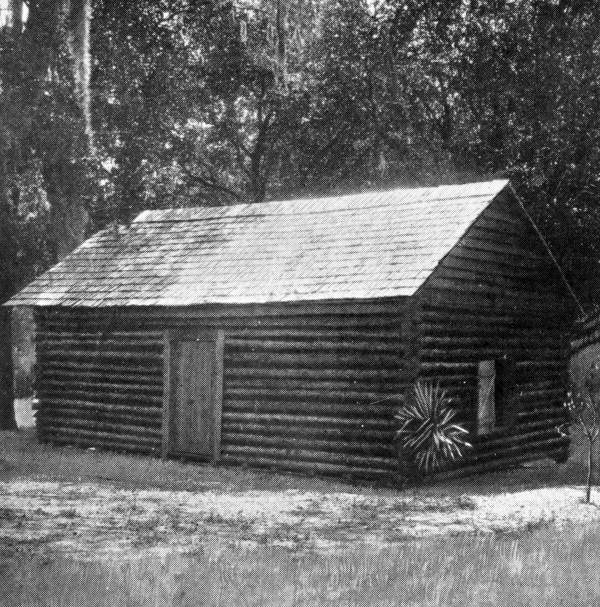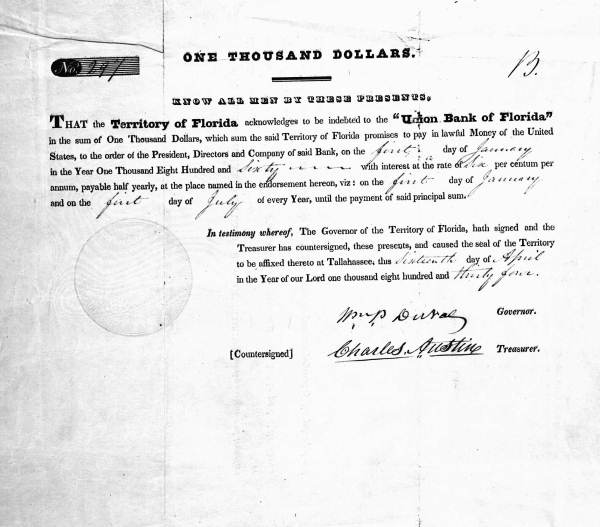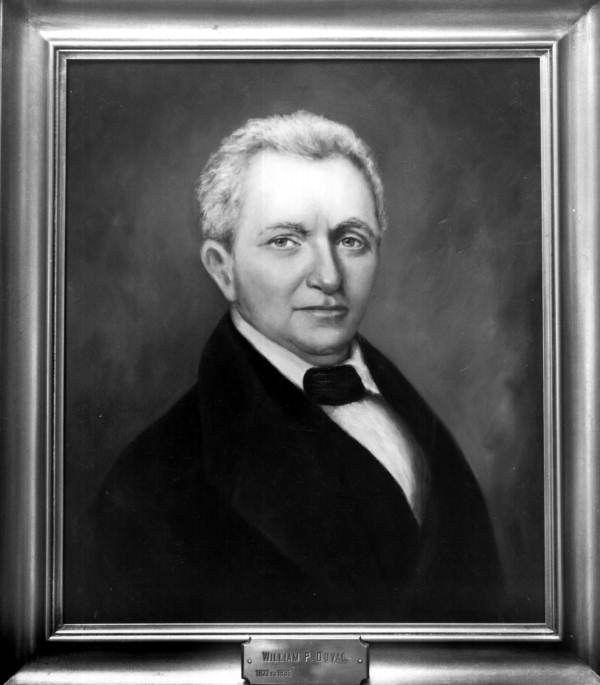Description of previous item
Description of next item
Florida's First Civil Governor
Published January 1, 2016 by Florida Memory
What do you know about territorial Florida’s first civil governor, William Pope DuVal? If you aren’t familiar with the governor’s backstory, here;s your chance to brush up.
DuVal was born in 1784 at Mount Comfort, Virginia, not far from Richmond. His father was a lawyer, and at the age of 14 DuVal decided to follow the same career. He read law in Bardstown, Kentucky and was admitted to the bar at 19.
President Monroe appointed young DuVal United States Judge for the eastern district of the newly acquired territory of Florida in May 1821. John C. Calhoun, a friend of DuVal’s who was then serving as Monroe’s Secretary of War, had put in a good word for the young lawyer with the President. DuVal’s career took another fortunate turn the following year when President Monroe appointed him governor. DuVal took over administration of the territory from General Andrew Jackson, who had served as military governor until Congress could establish a civil government for the new province.
DuVal served four three-year terms (1822-1834) as governor, leading Florida through a variety of early challenges as a territory. The very act of administrating the new province was one of the toughest. Commercial and political activity was concentrated at Pensacola and St. Augustine, which were separated by nearly 400 miles of sparse wilderness. The trip between these ports by boat took nearly as long as a land voyage and had its own inherent dangers. The answer, territorial officials determined, was to construct a new capital someplace between the two main cities. DuVal appointed two commissioners, John Lee Williams of Pensacola and Dr. William H. Simmons of St. Augustine to determine the best location. Tallahassee was the result; DuVal proclaimed it the capital on March 4, 1824.

Replica of Florida’s first capitol, established at Tallahassee in 1824. The replica was built by local Boy Scouts in honor of Florida’s centennial celebration (1924).
Governor DuVal was also at the center of one of the most contentious issues of Florida’s territorial era: banking. As is the case with most frontier societies, early Florida planters were in constant need of capital and credit to build up their plantations and create more wealth for themselves and the territory. The problem was that the basis for much of Florida’s existing wealth at that time was tied up in those same plantations, with no banking facilities to offer any liquidity. Leading citizens attempted on several occasions to get a branch of the United States Bank established in Florida, but nothing came of their efforts.
Meanwhile, Governor DuVal opposed the territorial legislature’s attempts to create a local territorial bank. He argued that the charters proposed by lawmakers lacked specific guarantees that notes would always be redeemed in specie upon demand. He also believed the charters should have contained provisions for forfeiture in the event of malfeasance by the bank directors, and that directors should be restricted from taking out large loans from their own bank. DuVal ultimately vetoed over a dozen bank charters in the 1820s. A few passed over his veto, but none lasted very long.
Then came the Union Bank, chartered in 1833 without a veto from DuVal. The Union Bank was an unusual institution, in that its stock was to be secured by public bonds. In other words, the territorial legislature was so desperate for capital that it allowed a private bank to do business supported by the credit of the territory itself! The scheme worked for a while, but mismanagement, the Panic of 1837, and a severe drought in 1840 combined forces to ultimately doom the bank and attract a Congressional investigation.

A bond drawn on the credit of the Territory of Florida and put at the disposal of the Union Bank. Notice that the bond is signed by Governor William Pope DuVal as chief executive of the territory (1834).
By this time, DuVal had returned to private life, practicing law in Florida until he moved to Texas in 1848. He died while on a trip to Washington, D.C. on March 19, 1854, and was interred in the Congressional Cemetery.
DuVal’s name is commemorated in a number of place names around the state (usually without the capital “V”). Streets carrying the name Duval may be found in Jacksonville, Tallahassee, Key West, Pensacola, and many other towns and cities. Duval County was named for the governor in 1822.
Find more images of Governor William Pope DuVal and Florida’s other governors by searching the Florida Photographic Collection.
Cite This Article
Chicago Manual of Style
(17th Edition)Florida Memory. "Florida's First Civil Governor." Floridiana, 2016. https://www.floridamemory.com/items/show/321966.
MLA
(9th Edition)Florida Memory. "Florida's First Civil Governor." Floridiana, 2016, https://www.floridamemory.com/items/show/321966. Accessed February 13, 2026.
APA
(7th Edition)Florida Memory. (2016, January 1). Florida's First Civil Governor. Floridiana. Retrieved from https://www.floridamemory.com/items/show/321966

 Listen: The Blues Program
Listen: The Blues Program